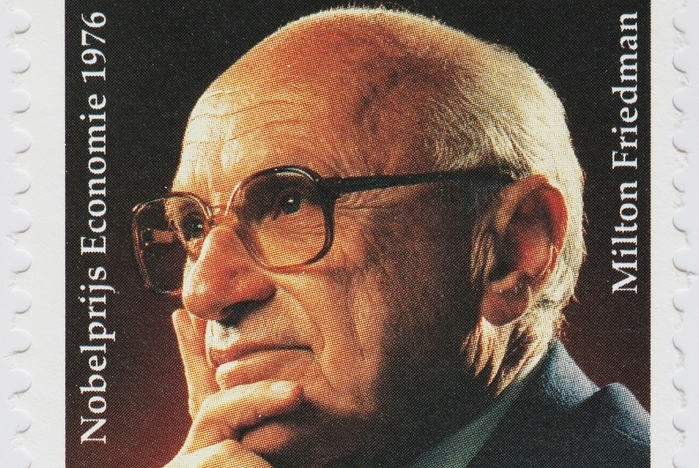ImpactAlpha, June 21 – All of a sudden, there is a public market for public benefit corporations.
In the decade or so since the first states created the new legal corporate structure, most public-benefit corporations have been privately held. That reflects not only the smaller size of the early adopters, but the assumption that public-market investors would shun companies that deviated from the strict shareholder-value ethos that still holds sway at most publicly traded corporations.
Public benefit corporation legal structures, now in 37 states and Washington D.C., allow for-profit companies to enshrine their social missions in their corporate charters as a way to protect (for example, from shareholder lawsuits) their ability to make decisions in the interests of employees and communities, in addition to shareholders.
Before last year, only one public-benefit corporation, Laureate Education, was publicly traded. In the last 18 months, roughly a dozen public-benefit corporations have gone public, either via initial public offerings or through mergers or conversions. Public-benefit IPOs include Vital Farms, Lemonade Insurance and Coursera. In January, Veeva Systems became the first publicly traded company to convert to a public benefit corporation.
There’s even a public-benefit SPAC, or special purpose acquisition company, Sustainable Development Acquisition I Corp., which raised $316 million in its initial public offering. Another public benefit corp, AppHarvest, arrived on the NASDAQ in February via a merger with Novus Capital, a publicly traded SPAC.
As “purpose” becomes a corporate requirement, public benefit corp. status can help investors shortcut the discovery of companies with strong environmental, social and governance practices. Companies that convert to the structure, for example, are required to adopt impact reporting requirements. The legal framework can also help resolve perceived conflicts between corporate commitments to climate action, racial justice and other “stakeholder” concerns and outmoded notions of “shareholder primacy,” the doctrine that executives must privilege financial return to investors.
“It’s a holistic approach that I believe produces better companies, better employee engagement and better returns,” says Nicole Neeman Brady, a principal at Renewable Resources Group and CEO of Sustainable Development Acquisition I.
Early data suggests publicly traded public-benefit corps. trade at a premium to other companies in their peer group. Neeman Brady says the structure is attractive to the growing number of investors looking for authentic ESG investments, as well as young investors that recognize ESG as a hot ticket item. A dearth of benefit corps. means they’re in high demand.
With capital in hand, Neeman Brady is on the hunt for an acquisition target in the water, food and renewable energy sectors that is addressing one of the U.N. Sustainable Development Goals. The acquisition target won’t be required to adopt the structure but “at least recognize that this is a path that I want them to be on,” she says.
Public-benefit corporation structures are state-level designations, in distinction to the “B Corp” certifications issued by nonprofit B Lab to verify a company’s social and environmental practices.
The public benefit corporation “puts legal force behind the idea that a business should have a positive purpose, commit to do no harm, seek sustainable wealth creation, and treat all its stakeholders with equal respect,” Bob Eccles, Leo Strine and Timothy Youmans write in Harvard Business Review. (Strine, the former chief justice of the Supreme Court of Delaware, will be a featured guest at ImpactAlpha’s Agents of Impact Call No. 29, “Rewriting rules and designing policy for the stakeholder economy,” Tuesday, June 29. RSVP here.)
“Just one thing has to happen to make the benefit corporation model the dominant form of corporate governance in U.S. capital markets,” they say. “The Business Roundtable and mainstream institutional investors must rally behind it.”
Corporate conversion
The January conversion to public-benefit status of Veeva Systems, a Pleasanton, Calif.-based life-sciences cloud-computing company valued at $47 billion, sent a signal that public-markets investors won’t run away from “stakeholder” structures. Veeva’s conversion won the support of 99% of the company’s shareholders.
“We didn’t view it as a trade off in financial performance or execution,” Josh Faddis, Veeva’s general counsel, told ImpactAlpha. “We viewed it as a change that would help us be a more durable company for the long term.”
At Veeva, executives believe the conversion brings higher levels of trust to relationships with Veeva customers as the company moves into clinical trial management, safety monitoring and handingly of key pharmaceutical data. Veeva counts among its customers all three U.S. COVID-19 vaccine manufacturers: Johnson & Johnson, Moderna and Pfizer. Another biotech company (and Veeva customer) United Therapeutics has announced plans to convert to the public-benefit corporation structure later this year.
Veeva’s stock price has increased 14-fold since the company went public in 2013. The company just notched its second straight quarter of record customer bookings.
In a letter to shareholders ahead of the January vote, Veeva founder and CEO Peter Gassner said the firm has “always believed that our deep commitment to customers, employees, and our core value of ‘do the right thing’ enhances our ability to create shareholder value.” A PBC conversion, said Gassner, “is a way to align our certificate of incorporation to the values-based way we operate the company.”
Veeva’s revised certificate of incorporation now includes a public benefit purpose, “to help make the industries it serves more productive and create high-quality employment opportunities.” The structure allows the company to act more confidently on behalf of stakeholders, Faddis says, like making its remote meeting software available to the industry for the duration of the pandemic or extending its clinical trial management software to small clinical trial sites that are less technology enabled.
Faddis says at least half of the large investors that Veeva spoke to were immediately supportive, including ESG-leaning investors like BlackRock. “It was like a sigh of relief. ‘Somebody’s doing this.’ It was almost like pent up demand.”
The remaining investors needed more education about PBCs and the rationale for conversion, but were largely supportive in the end, he said.
That attitude stands in contrast to the stance at Etsy, the crafts marketplace, that in 2017 declined to put a conversion to benefit-corp. status to a shareholder vote. Such a conversion was a requirement of maintaining its B Corp status; Etsy opted to let its B Corp certification lapse (see, “Etsy: Will ‘B-Corp’ Status Survive the IPO?”).
“If the move is not authentic and management and the board is not behind it, it may not be the right move,” says Faddis. “It doesn’t mean it might not be the right move in the future.”
Gorden Ritter, Veeva’s board chair and a very early investor via Emergence Capital, says he is seeing more and more young companies adopt the structure. And he likes the trend.
“One of our goals as a firm is to win big in the long-run,” Ritter told ImpactAlpha. A values-driven culture, how employees feel, are all parts of a good long-term company, he says. “The public benefit corporation structure is what we’re going to be imprinting on a lot of these companies going forward.”
Shareholder resolutions
Berwyn, Penn.-based B Lab introduced and campaigned for the public benefit corporation as an alternative corporate legal structure that could help management balance commitments to shareholders and stakeholders. Starting with Maryland in 2010, such designations are now available in all but 13 states.
The ranks of benefit corps. include household names such as Patagonia and Kickstarter, financial institutions like Amalgamated Bank, and startups like Allbirds, AltSchool, Aunt Bertha and Change.org.
But shareholders at companies like Alphabet, Facebook, Salesforce and Goldman Sachs are not yet clamoring to join the club. The advocacy group Shareholder Commons this year helped introduce proposals at 15 corporations asking shareholders to vote to adopt public benefit corporate structure. At Yelp, the resolution was approved by 11% of shareholders, allowing it to be submitted again next year. At 8 other companies, the resolutions gained more than 3% support, which traditionally would qualify the measures for resubmission. (The Securities and Exchange Commission last year increased that minimum to 5%. The Interfaith Center on Corporate Responsibility and As You Sow last week filed suit against the SEC to overturn the Trump-era rule change.)
Shareholder Commons’ Rick Alexander, the former head of legal at B Lab, tried to make the case to shareholders: Companies that extract value from stakeholders in order to maximize financial returns actually hurt diversified investors who depend on the broader economy to succeed over the long term.
Smart investors “first focus on making sure that their portfolio companies are operating within geological and social boundaries,” says Alexander. “If they’re doing that, then they can maximize value and then everything will work out.”
In its statement of opposition to the resolution, Alphabet’s management claimed that its business already involves “positive” activities, including a $1 billion commitment to help increase the Bay Area’s supply of affordable housing supply and the issuance of $5.75 billion in sustainability bonds and a $100 million fund to amplify the voices of Black creators.
Such activities have real-world positive benefits, Shareholder Commons acknowledged in its formal response. The benefit corp. proposal, rather “recognizes the fact that Alphabet is limited in its overall business model by its obligation to prioritize financial return to shareholders above all else.
One example: Despite its racial equity pledges, Alphabet distributes “more than two dozen podcasts from white supremacists and pro-Nazi groups.”
Alphabet’s legal structure “doesn’t permit authentic stakeholder developments,” says Alexander. If it were a public benefit corp., it “could just go right to addressing racial disparity and injustice and just eliminate those podcasts.”











